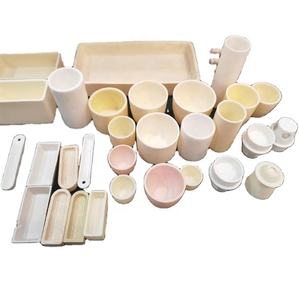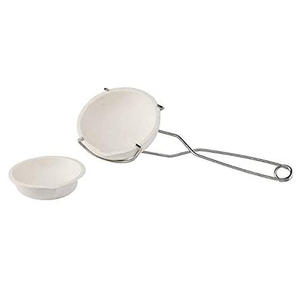Introduction to Ceramic Products: Linking Custom with Modern Product Scientific Research
Ceramic products have actually advanced far past their historic origins in pottery and art, becoming necessary parts in aerospace, electronic devices, medication, and energy systems. Specified by their inorganic, non-metallic composition and high-temperature processing, modern ceramics offer unmatched efficiency in severe settings. Whether as insulators in silicon chips, implants in human joints, or architectural products in jet engines, ceramic items today stand for a blend of old craftsmanship and sophisticated nanotechnology.
(Ceramic Products)
Classification and Functional Properties of Ceramics
Ceramic products can be extensively classified into traditional (e.g., blocks, floor tiles, porcelain) and advanced (e.g., silicon nitride, zirconia, alumina) kinds based upon make-up and application. Typical ceramics are valued for their affordable, longevity, and visual allure, while innovative porcelains master mechanical strength, thermal resistance, and electrical habits. Their distinct mix of firmness, rust resistance, and bio-inertness makes them indispensable where metals and polymers fall short, particularly under high stress and anxiety, temperature, or chemical direct exposure.
Manufacturing Processes and Technological Advancements
The production of ceramic items involves powder synthesis, shaping, sintering, and completing– each step essential to attaining wanted buildings. Advancements such as stimulate plasma sintering, additive manufacturing, and colloidal processing have substantially boosted dimensional accuracy, microstructural control, and useful assimilation. These improvements allow for complex geometries and multi-functional designs that were formerly difficult with standard approaches like slip spreading or completely dry pressing. Such development has actually broadened the extent of ceramic applications across markets.
Role in Electronic Devices and Semiconductor Industries
In the electronic devices market, ceramic items work as substrates, capacitors, sensing units, and insulating elements due to their excellent dielectric residential or commercial properties and thermal security. Multilayer ceramic capacitors (MLCCs), for instance, are located in virtually every electronic device, from mobile phones to electric cars. Alumina and aluminum nitride substratums are extensively utilized in power components and LED warmth sinks, making certain reliable thermal management and long-lasting reliability in high-performance systems.
Clinical Applications: Bioceramics and Implantable Gadgets
Bioceramics represent among the fastest-growing sectors in the ceramic product market. Products like hydroxyapatite, alumina, and zirconia are utilized in oral implants, bone substitutes, and joint prostheses because of their biocompatibility and put on resistance. Unlike metallic implants, ceramic-based gadgets lower ion leaching and lessen allergies, making them ideal for long-lasting implantation. Recent growths in porous scaffolds and bioactive glass-ceramics further enhance cells integration and regenerative abilities in clinical treatments.
Aerospace and Protection: Ceramics in Extreme Conditions
Ceramic items play a crucial role in aerospace and defense systems where materials need to stand up to extreme temperatures, stress, and effect. Elements such as turbine blades, rocket nose cones, and thermal protection tiles rely upon ceramics like silicon carbide and zirconium dioxide to preserve architectural honesty under hypersonic rates and re-entry conditions. Their lightweight nature integrated with high compressive toughness likewise makes them attractive for armor plating and ballistic protecting in army applications.
Environmental and Energy Technologies Using Ceramics
( Ceramic Products)
From gas cells to hazardous waste encapsulation, ceramic products are main to sustainable power and ecological removal modern technologies. Strong oxide fuel cells (SOFCs), for instance, rely on yttria-stabilized zirconia electrolytes to enable effective power conversion at high temperatures. In nuclear engineering, ceramics like SYNROC (synthetic rock) are established to debilitate radioactive isotopes in steady crystalline matrices. Additionally, catalytic ceramic membrane layers are being released in water filtration and industrial discharge control, contributing to international sustainability efforts.
Market Trends and Global Demand Drivers
The international ceramic items market is witnessing robust growth, sustained by need from electronics, medical care, automotive, and renewable energy fields. Asia-Pacific stays the largest manufacturer and consumer, driven by China’s manufacturing prominence and Japan’s management in sophisticated ceramics. North America and Europe adhere to carefully, sustained by R&D financial investments in clever porcelains and environment-friendly modern technology efforts. As automation and digital layout devices come to be a lot more incorporated right into ceramic manufacturing, production performance and customization capabilities continue to increase.
Challenges and Future Instructions in Ceramic Product Advancement
Despite their advantages, ceramic products deal with difficulties including brittleness, minimal ductility, and high processing expenses. Continuous study focuses on improving durability through nanostructuring, composite support, and self-healing mechanisms. Reusing and end-of-life healing also stay areas for renovation, especially in high-value yet difficult-to-reprocess elements. Looking forward, the convergence of AI-guided product layout, 3D printing, and smart sensing will certainly redefine exactly how ceramic items are crafted, created, and used across future sectors.
Distributor
Advanced Ceramics founded on October 17, 2012, is a high-tech enterprise committed to the research and development, production, processing, sales and technical services of ceramic relative materials and products. Our products includes but not limited to Boron Carbide Ceramic Products, Boron Nitride Ceramic Products, Silicon Carbide Ceramic Products, Silicon Nitride Ceramic Products, Zirconium Dioxide Ceramic Products, etc. If you are interested, please feel free to contact us.(nanotrun@yahoo.com)
Tags:
All articles and pictures are from the Internet. If there are any copyright issues, please contact us in time to delete.
Inquiry us


